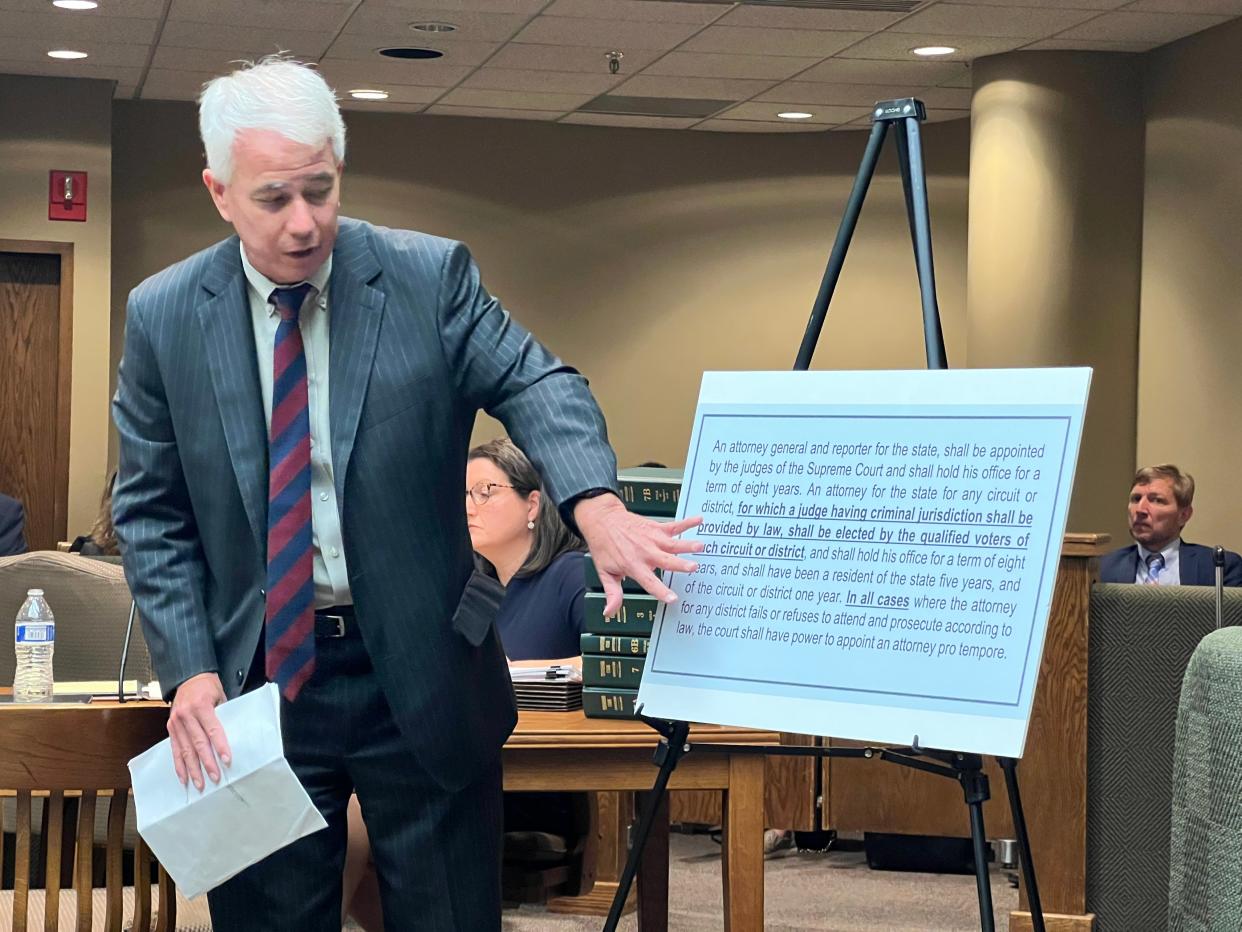Judge: TN law taking post-conviction death penalty cases from local DAs is unconstitutional

Shelby County Criminal Court Judge Paula Skahan ruled in favor of the Shelby County district attorney and a local defense attorney, saying that a Tennessee state law passed earlier this year that strips all post-conviction death penalty proceedings from local district attorneys is not constitutional.
Arguments were heard over a month ago in the case, with Shelby County District Attorney Steve Mulroy and defense attorney Robert Hutton arguing the law violates the state constitution and the rights of voters.
Although Skahan ruled to strike the law as unconstitutional, she did not rule on the violation of voting rights. The two other issues the judge ruled on — whether the Tennessee General Assembly gave proper notice to the public about the law and if the law wrongfully removed jurisdiction from locally elected district attorneys — both went in favor of Mulroy and Hutton.
The Tennessee attorney general's office is expected to file an appeal by Aug. 4, sending the challenge to the Tennessee Criminal Court of Appeals. When a ruling from that court is handed down, the case will move to the Tennessee Supreme Court.
"This case is important historically, because back in the 1700s, the General Assembly did appoint all the prosecutors and all judges," Hutton told reporters after the ruling. "There was a change in the 1850s because of graft and corruption. So what they said, going forward, they put in our constitution that prosecutors have to be elected locally."
The motion to challenge the law was originally filed by Hutton— who is representing Larry McKay, a man who is currently facing the death penalty — over two months ago, and Mulroy signed on, and adopted, the motion the same day.
Hutton had filed a petition for coram nobis on March 30 this year, saying that new evidence in McKay's murder case from 1982 could have changed the outcome of that original case.
"We respectfully disagree with the court's decision and look forward to seeking clarity at the appellate level," said Elizabeth Johnson, press secretary for the Office of the Tennessee Attorney General, in an email statement. "Ensuring the adversarial system remains fully engaged over the life of a capital case is our obligation to the victims' families because no family should be deprived of justice."
While the constitutional challenge makes its way through Tennessee's court system, McKay's coram nobis proceedings will be stayed.
The law was originally filed to tackle rape kit backlogs, but was changed to assign these cases, which are often referenced as "collateral review" cases, to the Tennessee attorney general. Mulroy and Hutton argued that the law takes away the autonomy of local district attorneys, who are elected, and gives it to the attorney general, who is not elected.
Tennessee State House Minority Leader Rep. William Lambert, R-Portland, initially sponsored the legislation in the House and Sen. Brent Taylor, R-Memphis, later joined as Senate sponsor.
Taylor, a former Memphis city councilman and Shelby County Election commissioner, said during legislative hearings this spring the bill would help the attorney general’s office move “seamlessly” through the death penalty appeals processes. The AG handles the appeals process for death penalty cases, but a collateral review bumps the case back to the local trial court temporarily.
Opponents of the bill, like Sen. Raumesh Akbari, D-Memphis, called it a “waste of resources and unconstitutional” on the Senate floor. Tennessee Democrats argued the AG’s office was overstepping to wrest control from district attorney’s offices.
Who executes TN's death row inmates: Court records provide a rare glimpse — and in their own words
The bill was signed into law on April 28, and Hutton filed his motion the following Monday.
During a June hearing on the case, where Hutton and Mulroy argued in favor of keeping proceedings local, the duo argued that when you read the text of the state constitution plainly, as well as with historical context, it says that a DA has the sole power to prosecute cases in their own jurisdictions.
Mulroy also contended that if the state legislature could take away a district attorney's power to prosecute these cases, they could take away any power from local DAs. When asked if that was a slippery slope argument after the hearing in June, he said the motions filed by his office and Hutton are a line in the sand.
"This has to do with accountability, too," said Jessica Indingnaro, the newly named chief administrative officer for the Shelby County District Attorney's Office. "A regular person here, in Shelby County, has little to no influence over how the Attorney General is selected...You have to go through multiple elected officials to get that person there. Here, District Attorney Mulroy is directly responsible to the voters, and it's just a more direct line for local voters."
Nicholas Spangler, arguing on behalf of the state AG's office, said that Hutton did not have standing to file the motion to disqualify the Tennessee AG's office from McKay's coram nobis proceeding since there was no provable harm that would come from Spangler's office prosecuting the case.
Lucas Finton is a criminal justice reporter with The Commercial Appeal. He can be reached at Lucas.Finton@commercialappeal.com and followed on Twitter @LucasFinton.
This article originally appeared on Memphis Commercial Appeal: TN law taking away post-coviction death penalty cases unconstitutional: judge

